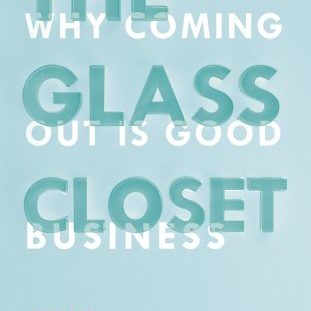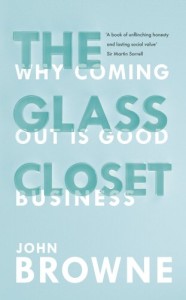
 The Glass Closet: Why Coming Out Is Good Business is one of the most important books I have read in years.
The Glass Closet: Why Coming Out Is Good Business is one of the most important books I have read in years.
John Browne, the former CEO of BP, was outed in 2007 when a former lover sold his story to a British newspaper. Even though the relationship occurred between two consenting adults, Browne didn’t survive the homophobic coverage in the British tabloids.
Just to put a few things out there: Browne was not married, unlike Brian Dunn, former CEO of Best Buy, who had an affair with an employee while still married to a woman who was raising his three children. Browne’s lover was not an employee of BP, unlike Mark Hurd, who had an affair and then harassed an employee while he was CEO of HP. And his lover was not a journalist who provided positive coverage of BP, unlike the time Jack Welch had an affair with Suzy Wetlaufer (now Suzy Welch), then editor of Harvard Business Review.
(I think you get my point.)
I love this book because it is very heartfelt and personal. This isn’t another boring autobiography of a former CEO. This book doesn’t lecture executives on diversity and inclusion policies in the workforce. And the author doesn’t have a “gay agenda” that pushes quotas as a means to achieve some false level of diversity.
This book is about a successful man who hid his true identity for many years and wants individuals and corporations to understand the emotional and financial toll that “closeted behavior” has on an organization. When you have an employee who uses 25% of his brain to create a wall between his personal and professional life, you don’t have an employee who is fully engaged and paying attention to his job.
Through business case studies and compelling examples of human beings who struggle to harmonize their personal and professional lives at work, Browne explains how many LGBT employees are still penalized for being “excessively sexual” at work when they are simply talking about their lives. And he makes the case that the conscientious inclusion of all employees — gay, straight, transgender — makes for a more productive, profitable and beneficial organization.
Browne is a capitalist and believes that corporations are the engine of human progress that bring wealth and prosperity in our lives, but implicit and explicit homophobia still exists in the workforce. How can we make progress when corporations are biased against large segments of our society?
The Glass Closet: Why Coming Out Is Good Business is a great book with many good stories, but I also think it is an excellent book for HR professionals who want to understand how homophobia is bad for business. After Browne had resigned, he was replaced by Tony Hayward. You may know Hayward as the gentleman who was CEO of BP during the gulf crisis. Hayward woefully told the press, “I’d like my life back.”
I think John Browne — and many competent and amazing LGBT employees who have been fired for their sexual orientation — can relate to that statement.
You must be logged in to post a comment.